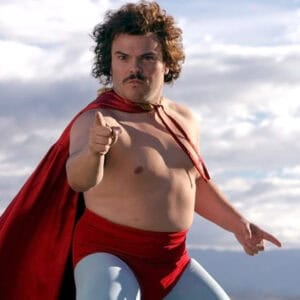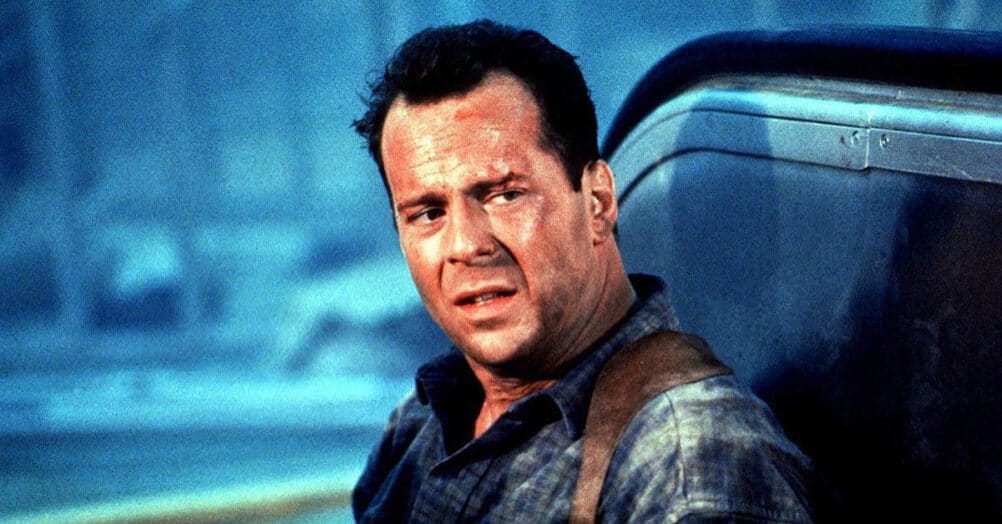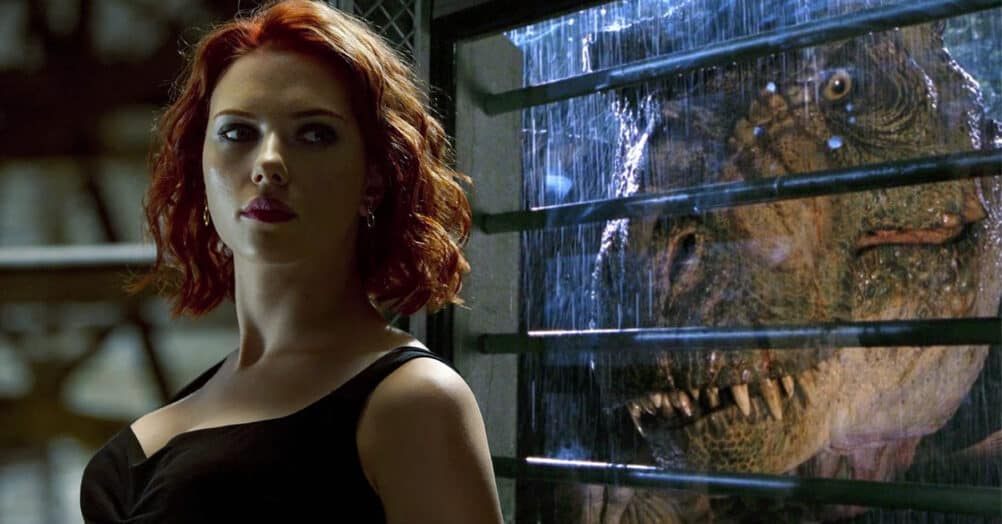
Just
like the mavericks from NYU and USC who revolutionized the world of cinema
in the 1970s and 80s, Jared Hess is part of a cadre of BYU grads who are
taking
Hollywood
by storm today. Ok, not quite. Hess’s first film, NAPOLEON DYNAMITE, was a
breath of fresh air though – providing a much-needed reminder that not all
independent films are art-school circle jerks or b-list actor vanity
projects. Though Hess’s latest project, NACHO
LIBRE, is his first with a studio (
Paramount
) and a name actor (Jack Black), it still features the oddball sense of
humor that made Dynamite a cult sensation.
Last
week Hess talked about his experience making NACHO LIBRE in
Mexico
. The film opens this week. Check it out.
Jared Hess

What
got you interesting in making a film about Mexican wrestling?
I’d
been a fan of Lucha Libre for quite a while. My first exposure to it, I saw
a movie by Santo on TV late one night. Santo was like the Muhammad Ali of
the wrestling world, and he was beating up the daughter of Frankenstein or
something. [laughs] But I hadn’t seen anything like it before. Later I was
able to go to Wal-mart and they had some of his videos there, and I just
became a big fan of Lucha Libre. Anyway, Nickelodeon had the rights to an
article based on a true story of a wrestler named Fray Tormenta down in
Mexico. He was a Mexican wrestler who wrestled kind of secretly for a couple
of years to make a little extra money for this orphanage. I first learned
about it and came to Mike (White) and him and Jack (Black) had just formed
this production company and they were both really excited.
What
is the process like when you’re working with an actor like Jack Black?
In the
little time that we had before shooting, we did a lot of rehearsals just to
try out different things and to kind of what felt like it worked and what
didn’t. He’s such a good guy, man. He really doesn’t have an ego. His
personality really lends itself to kind of an open environment for ideas. So
we would do it my way and then Jack would be like, “Let me put some
mustard on this one,” and we’d go again. It was just great. It was very
cool just to try what felt right.
Was
there a lot of improv?
We
really stuck to the script and how it was written, as far as the dialogue is
concerned. But there are always little nuggets where you’re on set and
something else just feels better.
How
difficult was it to shoot the actual wrestling sequences?
You
know, it was something that I’d never done before. I had a really good
stunt choreographer who choreographed the fights. We’d written the fights
down and tried to be very specific about what happened in the fights and
everything. But he choreographed them. It was the first time I was working
with multiple cameras and all that, but I had a lot of help figuring that
out.
Did
you freak out when Jack hurt himself?
I did.
That was a bad day. But he was a trooper and got stitched up and was back
four days later wrestling again.
He
showed us his scar below his eyebrow.
Yeah.
As an actor, that guy uses his eyebrows more than anybody. It was kind of
traumatic at the time, but he got through it all right.
How
do you navigate the fine line between comedy and stereotypes?
For
one thing, the world of Lucha Libre is something that’s so outrageous and
funny. When you experience it live, entire families are there and they’re
totally making fun of the guys that are wrestling. They have their favorites
and they’re totally trashing the other guys. It’s such a funny, crazy,
bizarre thing to experience. It was very important in making the film that
we shoot on location in Mexico with real wrestlers and real fans of Lucha
Libre. Our whole crew was Mexican; they were all from Mexico City. It was
probably the fest crew I’ve ever worked with. I don’t feel like it’s
my movie. I share it with everyone who worked on it. It was just an amazing
experience.
Did
you anticipate a lot of turbulence moving from the indie world to the studio
world?
Yeah
– just kind of the scale of everything was something that took a while to
get used to: a humongous crew and having money to actually feed everybody. I
think there’s a certain mobility you have with a small crew when you’re
doing an indie film. There are a lot more personalities involved with a
studio movie and sometimes you bonk heads with people over certain creative
things. But I feel very fortunate that I was able to have the experience
that I had. There were a few hiccups along the way, but I learned a ton.
Both
Nacho Libre and Napoleon Dynamite feature a lot of close-ups on food. Is
that going to be a trademark for you?
I
don’t know. I definitely like it. I like food as a weapon. I don’t know;
it could be (a trademark).
After
the success of Napoleon Dynamite, did you feel a lot of pressure to come up
big with your next film?
The
success of Napoleon Dynamite was so unexpected. It’s always been a very
small movie to me and a very personal film. At the time, we didn’t know
that it would see the light of day. I hoped that maybe it would be a
stepping stone for me, but I never expected that it would get into Sundance
or have the theatrical run that it did. I just want to keep doing things
that feel right to me, that I feel passionate about. Everything will always
be compared to the last thing that you did before it. But ultimately I feel
that Nacho still has my sense of humor. It’s a completely different world
than Napoleon, but it’s a world that I love just the same.
Do
you feel that this is more of a kid’s movie?
I
think that there are elements that make it more accessible to than Napoleon.
Just the fact that we have a music score – certain things that maybe seem
more polished, just because we had the means to do it on this one. I don’t
know if it’s really demographic-specific. With Napoleon, I always thought
that it would appeal to a college-age crowd. When little kids and moms
learned that it was PG and didn’t have anything too offensive in it, then
elementary kids go into it. I think ultimately it boils down to your sense
of humor. (Nacho Libre) is a Nickelodeon movie, but think there are things
that, depending on your sense of humor, will resonate with adults.
Do
you have any plans yet for the DVD?
Yeah.
We’ve got some deleted scenes and we have the same guys who did some of
the docs on Napoleon on the shoot. So there will be a behind the scenes
thing as well.
Is
there ever talk about getting together with Jon Heder for Napoleon 2?
I’m
sure that the studio would like it, but right now it’s just not something
that I’ve really thought about creatively. I’m excited about other
things right now.
What
are you doing next?
I’ve
got a couple of different original things that I’ve been working on for a
while. I’m gonna take a family vacation in the Fall and figure out what
I’m gonna do.
Do
you ever see yourself going back and making another indie film?
Definitely.
I don’t know that you even need a studio to make a movie. On Dynamite we
were able to find other money. There’s definitely a freedom and mobility
that you have when you’re doing something on the cheap.



















Follow the JOBLO MOVIE NETWORK
Follow us on YOUTUBE
Follow ARROW IN THE HEAD
Follow AITH on YOUTUBE